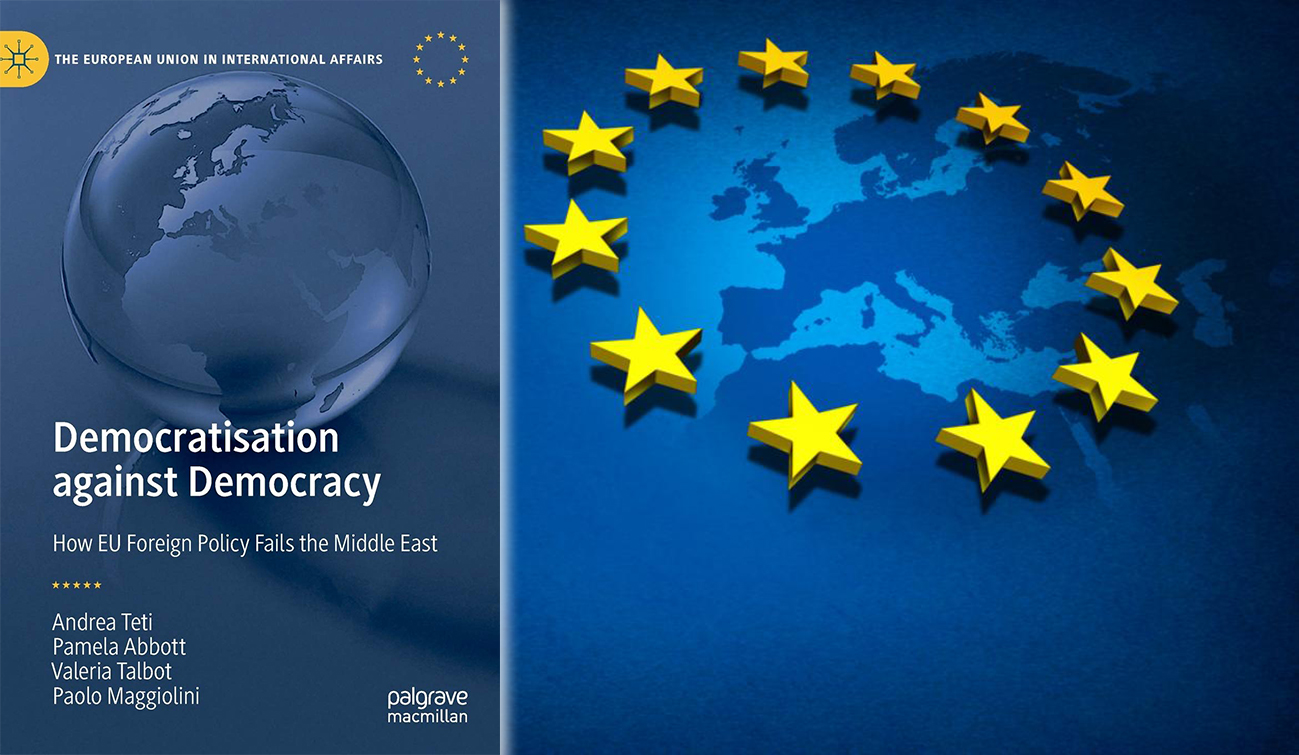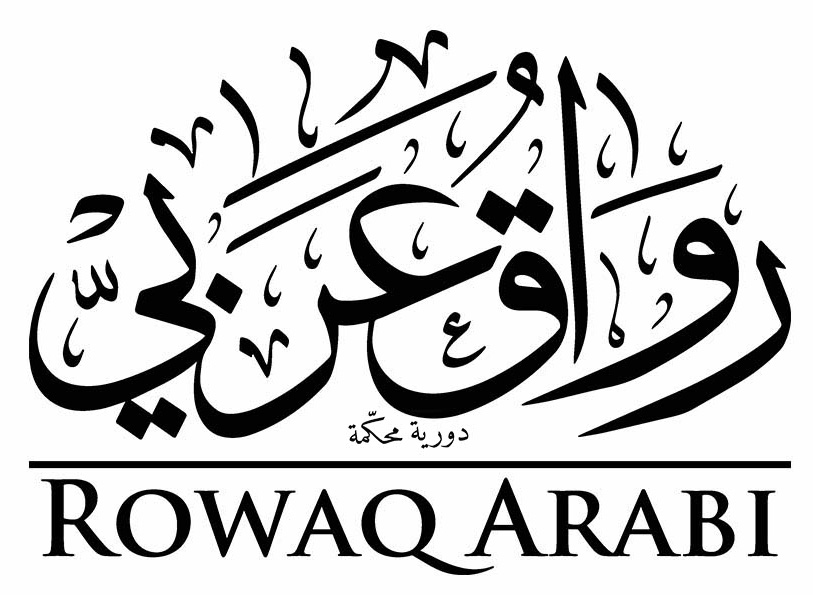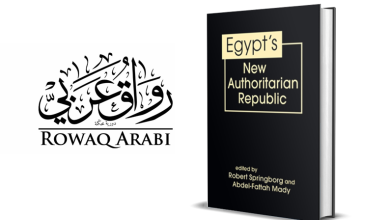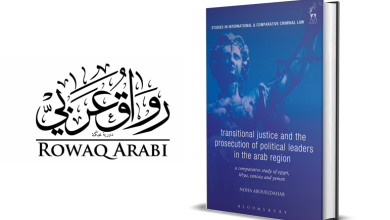Book Review: Democratization against Democracy

Democratisation Against Democracy, published as part of The European Union in International Affairs series by Palgrave Macmillan (2020), is a book that provides a rich dose of methodological, theoretical and empirical content about the relations between the European Union and the Middle East and North Africa region (MENA). It utilizes a vast amount of survey data covering a wide range of development and democratization related issues. With a wealth of both qualitative and quantitative data, the book is a must read, not only for students and teachers of development-related issues in the MENA region or more broadly the Global South, but also for those generally interested in the different aspects of EU-MENA relations.
The flow of this book is guided by quite a simple yet powerful idea about a mismatch between the EU development discourse in the MENA regions on the one hand, and the aspirations of the region’s inhabitants on the other. This is conducted using a Critical Discourse Analysis (CDA)–a multidisciplinary method for studying the context (including historical) of talk and text–of development narratives in EU documents. The findings are then measured against survey data designed to demonstrate how people in the MENA region think of their own development-related issues. The book’s central finding is that the two (the EU discourse and ‘what the People want’) are in a clear state of mismatch. For the authors of the book, this signals a “lack of understanding” or a “failure” of EU development policy towards its southern neighbours.
The book structure is designed to reflect this mismatch. Following the introduction, the first part (which comprises five chapters) covers the evolution and the trajectory of the EU’s development policy and rhetoric using CDA. The second part, comprising five more chapters, looks at extensive survey data in four MENA countries on issues related to the EU’s development discourse to examine whether they match or mismatch.
The four authors of the book (Andrea Teti, Pamela Abbott, Valeria Talbot, Paolo Maggiolini) have adeptly presented this mismatch, analysing a large amount of EU documents related to the so-called Southern Mediterranean Countries (SMCs) in an attempt to identify the EU’s priorities in dealing with the MENA region
The general thread that weaves throughout the book is the EU’s consistent prioritization of political and civil rights, likened to a narrow and superficial definition of procedural democracy, over economic and social rights and a “deeper” view of democracy that takes into account wealth inequality and better distributive justice. When economic matters were given some attention by the EU, it was generally within a framework of a neoliberal developmental view, the book repeatedly argues. This comprises the entire first half of the book, before we turn to the second part, which demonstrates that these policies run contrary to what “the people” of the region really want.
The book states clearly the “failings” of the European model of development it tries to “encourage” its southern neighbours in the MENA region to adopt. The book claims that what the “people” of the region want is “ironically, […] much closer to the ‘European Social Model’ than the continent’s political leadership acknowledges”. If book titles did not have to adhere to lyrical standards, the title of this volume might have read something like: Democratization [by the EU] Against [the local population’s understanding of] Democracy.
Despite discussing matters of development between “core” and “periphery” (or perhaps “semi-periphery”) regions from a critical point of view, the book just papers over theories of development associated with names such as Andre Gunder Frank,[1] Samir Amin,[2] Immanuel Wallerstein,[3] and Paul Baran.[4] These pioneers of dependency and world-systems theory thought it spurious to think that one region’s development is not the result of another region’s underdevelopment under an interconnected world system of unequal exchanges and international division of labour. Therefore, presenting the lack of progress in democratisation and development as simply a “failure” or “lack of understanding” on the EU’s part ignores the possibility that deep democracy and inclusive development in the MENA countries might harm the real or perceived interests of the EU.
Dependency and world-systems theories of development are far from sacred and can certainly be critiqued, but they have been prominent enough since the 1960s that it would be a noticeable gap for a critical book on development covering a ‘core-periphery’ relationship to not even mention them.
Arabs Not Ready for Democracy?
Using evidence-based data analysis, the book refreshingly criticizes the value-based approach (i.e. the civilizing mission) of Europe and defies some of the most notorious orientalist myths. It shows, inter alia, that democracy has strong support in the region even if socioeconomic matters are often considered a more pressing priority; it also argues–against typical (neo) orientalist views–that the lack of democracy is caused by objective conditions rather than by lack of subjective demand. In its introduction, the book asserts–against a key mainstay of the orientalist imagination–that “there is no single ‘Arab position’, that it is not possible to assume the homogeneity of ‘Arab culture’ or indeed values or attitudes, but rather that there are clear and significant differences between countries.”
As a continuation of this theme, the book also criticizes the account that tends to present democracy as merely a matter of values while glossing over structural causes of the region’s seemingly exceptional resistance to democratization, and the related account that reduces political and economic transformation (or lack thereof) purely to the agency of Europe’s autocratic and underdeveloped Others. These structural and historical factors, according to the authors, include the effects of Europe’s own imperial past and neo-imperial present, and it aims at shifting responsibility for reaching these goals onto Europe’s Others. “This kind of Eurocentrism also makes possible the EU’s perception of itself as being a force for good in world politics, morally as well as politically and economically, although others perceive the Union as pursuing a neo-imperial ‘civilising mission’,” reads the book.
The book argues that the exportation of the EU model provides “more benefit to the EU than to the neighbourhood countries” casting doubt therefore on the EU’s value-based approach, exposing it instead as a realist approach. Although the authors admit that such realist approach might not serve the long-term interests of the EU itself, it is sometimes easy to lose track of what exactly the book advocates as an alternative to the current model when it criticizes the short-termism of EU’s foreign policy; it seems that the book advocates for employing EU ‘leverage’ to serve some progressive end. But more than a realist approach, that approach itself risks being a value-based approach (i.e. a civilizing mission), an approach the book so vehemently criticizes. ‘Conditionality […] continues not to be applied, and the EU continues to display an unwillingness to exercise what leverage it has in the region—at least, not in a progressive direction,’ reads the book.
Despite its unmistakably critical language, the book, in its quest to effectively argue that the EU’s policy in the region does not cater to what Arabs want, goes on to almost persistently imply a oneness of the Arab position. The book’s paradox seems is that it tries to prove that the EU discourse and action do not match what the people want, while arguing that what the people want is not the same thing (i.e. a single position). The book in its use of the “Arab people” as a totality–based on surveys from only four Arabic-speaking countries which often shows great disparities between countries but also within them–will often utter sentences such as the following: “we examine Arab citizens’ attitudes to democracy, human rights, corruption and international politics, as well as what they think were the main causes of the Uprisings and the major challenges now facing their country.”
However, the upside of this is that the authors do not renounce–in the usual spirit of a dominant post-structural tradition in today’s academe–the term “people” to indicate a majority who were harmed by the EU’s neoliberal policy versus a minority that might have possibly benefited from it. It admittedly requires a very delicate balance to establish that a majority of the people were harmed by EU neoliberalism and demand a different model without falling into an orientalist trap of constructing an ahistorical homogenous Eastern subject that is immune to change across various spatio-temporal fields. In criticizing the EU’s “democratisation against democracy”, the book reminds us of how difficult it is sometimes to avoid “orientalising against orientalism”.
[1]Frank, Andre G. (1966) ‘The Development of Underdevelopment’, Monthly Review 18(4), p. 17.
[2]Amin, Samir (1974) ‘Accumulation and Development: A Theoretical Model’, Review of African Political Economy, 1 (1), pp. 9-26.
[3]Wallerstein, Immanuel (2006) World-Systems Analysis. An Introduction. (Durham: Duke University Press).
[4]Baran, Paul A. (1952) ‘On the Political Economy of Backwardness’, The Manchester School 20, pp. 66-84.
Read this post in: العربية





